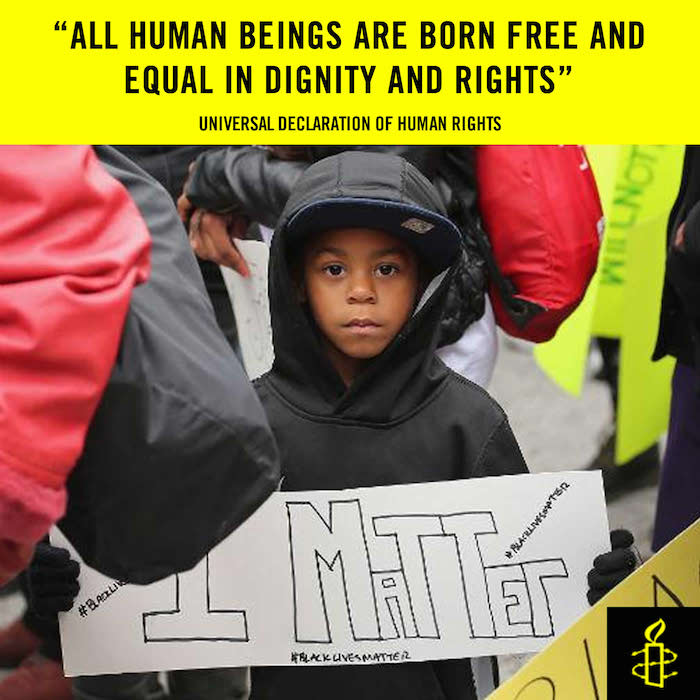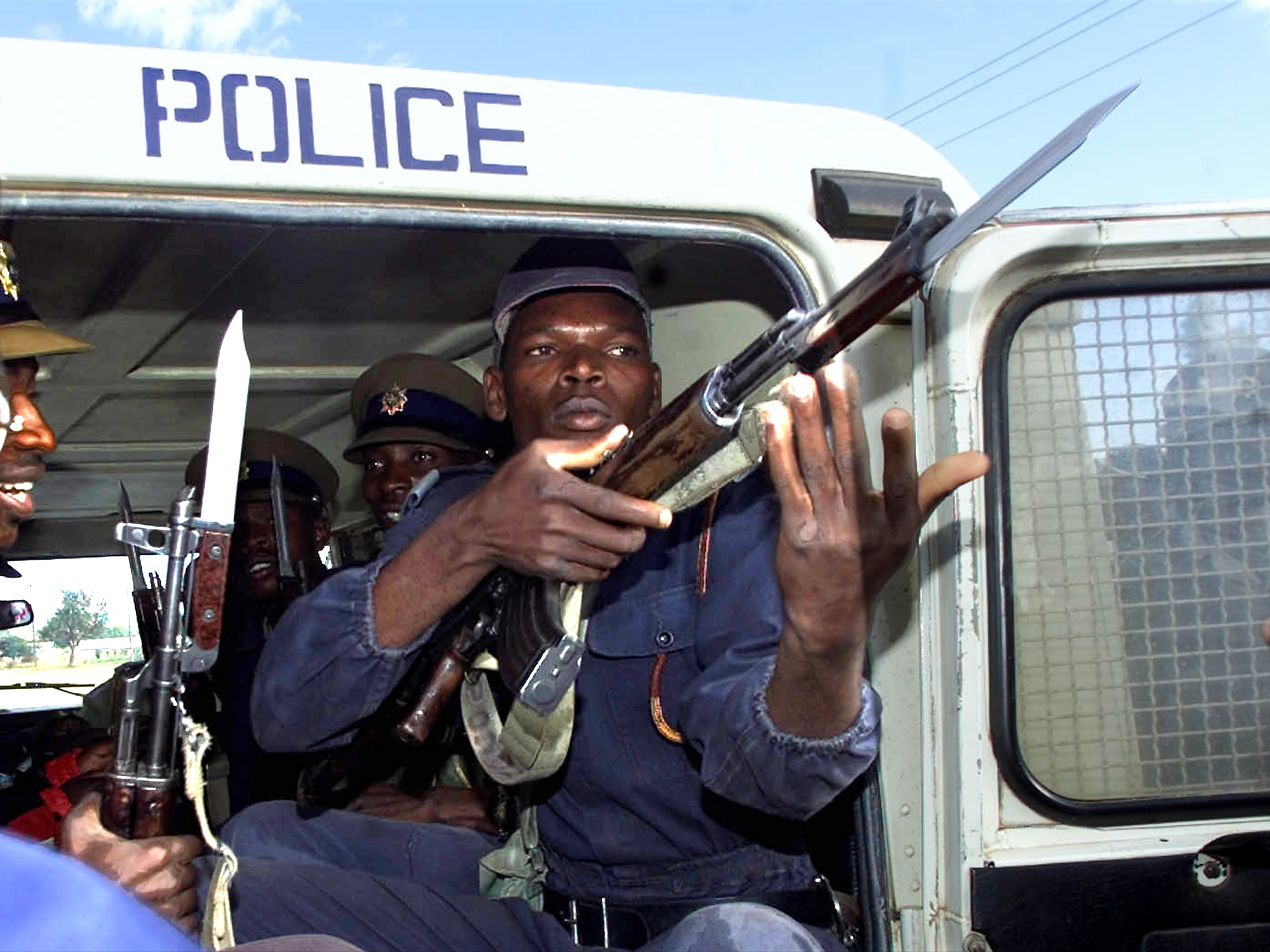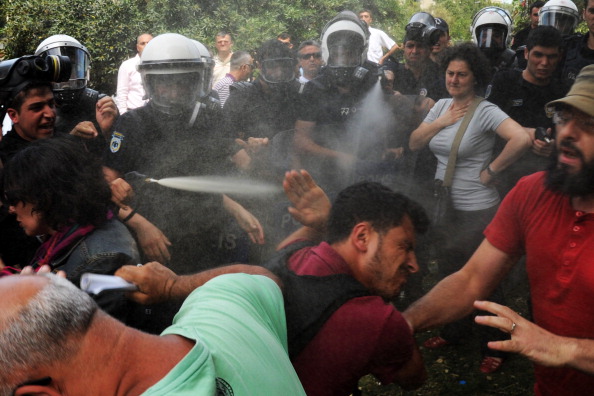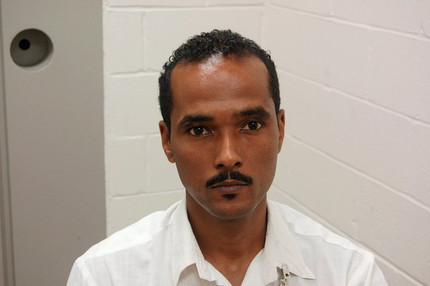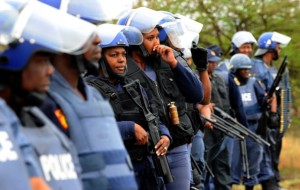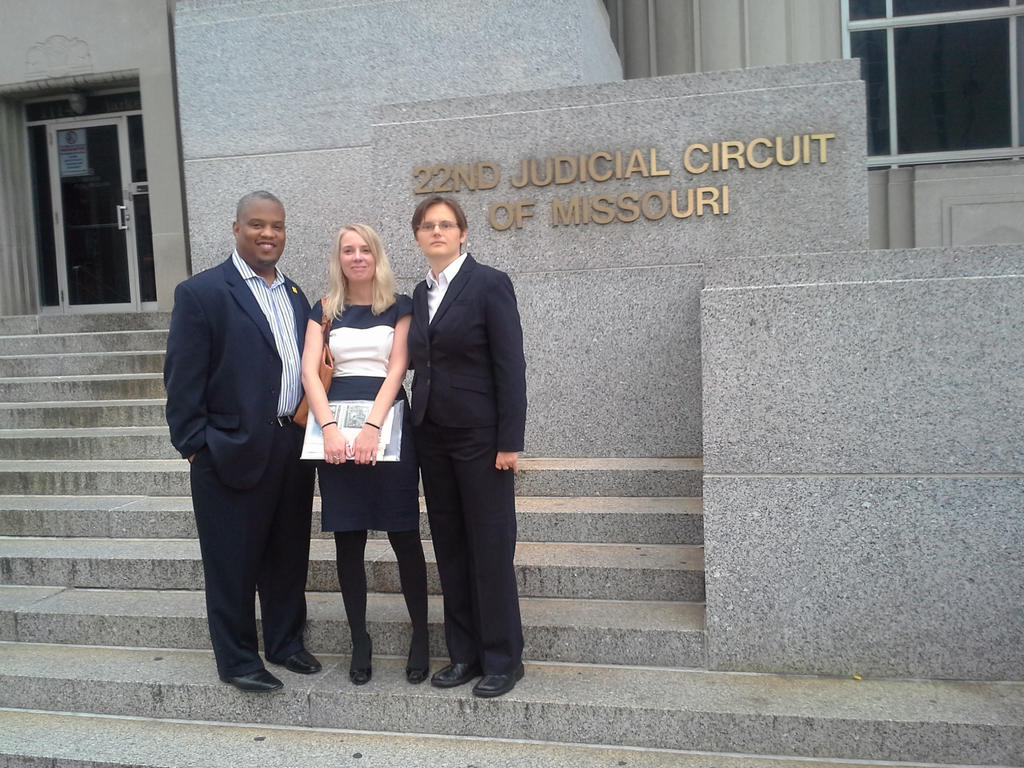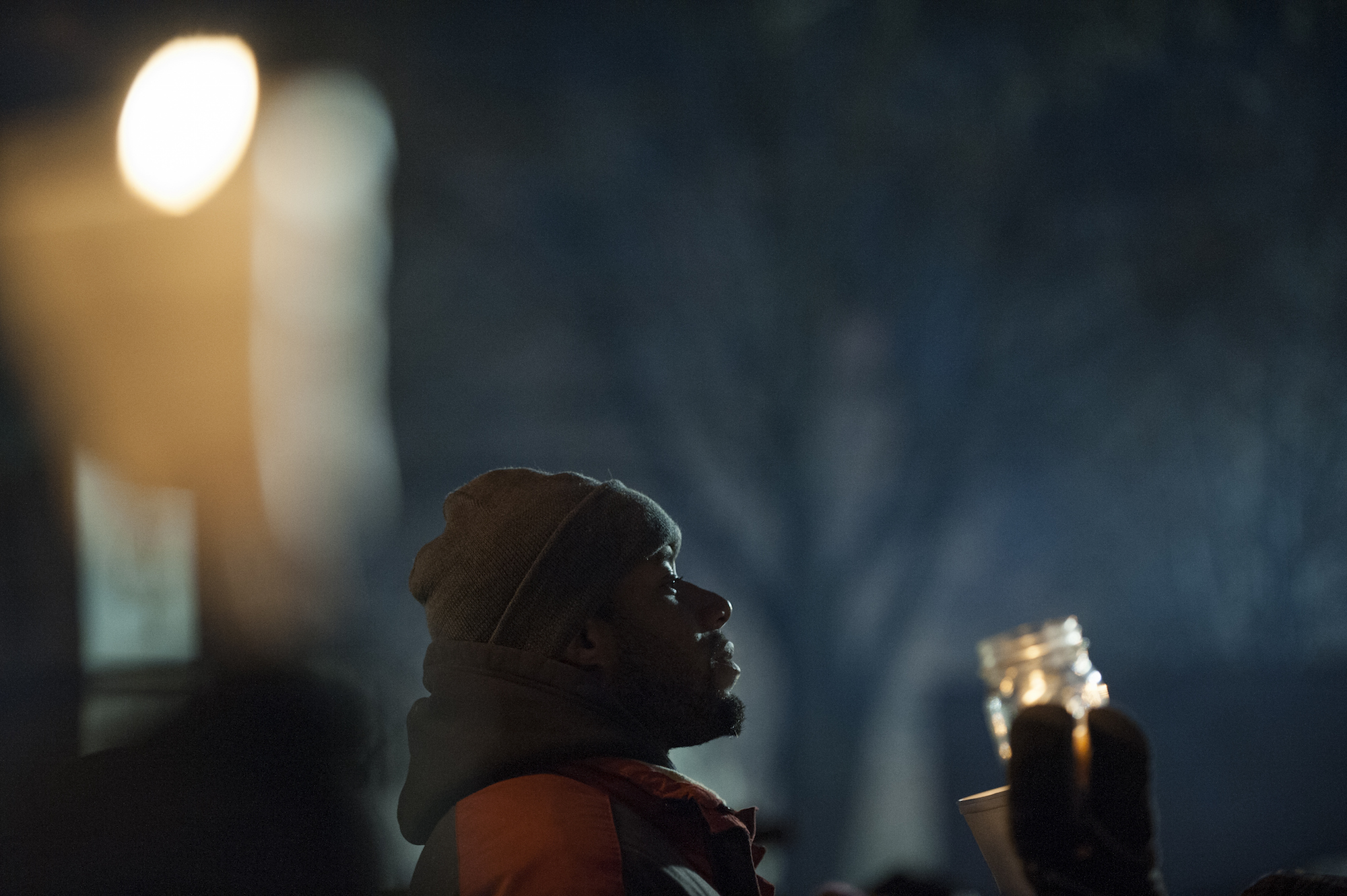
Protestors, activists, and community members listen to speeches at a candlelight vigil held for Jamar Clark on November 20 in Minneapolis, Minnesota. (Stephen Maturen/Getty Images)
One year ago today, on the evening of November 24, 2014, I remember watching one of the most anticipated legal decisions since the O.J. Simpson verdict. This was the night that St. Louis County prosecutor Bob McCulloch announced that Officer Darren Wilson would not be indicted for the shooting of Mr. Michael Brown.
One year later, my thoughts are 550 miles away in Minneapolis, MN, dealing with another police shooting of an unarmed black man. As in Ferguson, the community is protesting the targeting of black lives and the shooting of Mr. Jamar Clark. Community members are being arrested for expressing their constitutional right to peacefully assemble while the victim is being demonized as a criminal without the opportunity to defend himself, and the officers protected from the scrutiny of the citizens that they are sworn to protect. SEE THE REST OF THIS POST

